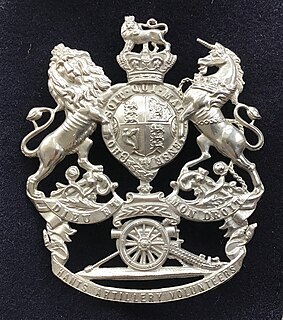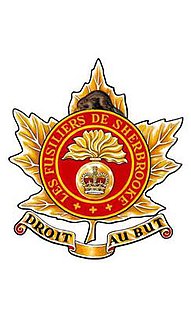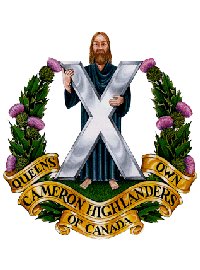 W
WThe 2nd Infantry Division, Queen Sirikit's Guard also known as Mechanized Infantry Division is an Mechanized infantry division of the Royal Thai Army. It is currently part of the First Army Area. The division was founded by King Chulalongkorn in 1910. In 1988 the division was designated a King's Guard unit by cabinet order, however, as a mark of distinction the division and all its subsidiary units were put under the patronage of Queen Sirikit and has since been known as the Queen's Guard.
 W
WThe 1st Middlesex Engineers was the senior engineer unit of Britain's Volunteer Force, raised in 1860 and originally recruited from the South Kensington Museum. It provided Royal Engineers (RE) units to the 47th Division, the 47th (London) Infantry Division, the 56th (London) Divisions, and the 60th Division during both World Wars. The engineers served on the First World War's Western Front from 1915 to 1918, and in a number of theatres during the Second World War. It also served in the postwar Territorial Army, until 1967.
 W
WThe 6th Mounted Rifles were a light cavalry regiment of the Royal Prussian Army. The regiment was formed 1 October 1910 in Erfurt.
 W
WThe 103rd Regiment was an infantry regiment of the Canadian Non-Permanent Active Militia, authorized at Calgary, Alberta, Canada, by General Order on 1 April 1910.
 W
WThe Calgary Highlanders is a Canadian Army Primary Reserve infantry regiment, headquartered at Mewata Armouries in Calgary, Alberta, Canada. The regiment is a part-time reserve unit, under the command of 41 Canadian Brigade Group, itself part of 3rd Canadian Division, one of four region-based Canadian Army divisions. The regiment is one of only two regiments in the Canadian Forces to wear an honorary distinction on their uniform, commemorating the counterattack at Kitcheners' Wood. On 9 January 2015, the regiment was recognized with the Canadian Forces' Unit Commendation for outstanding contributions to the war in Afghanistan.
 W
WThe Clyde Royal Garrison Artillery and its successors were Scottish part-time coast defence units of the British Army from 1910 to 1967. Although they unit saw no active service, they supplied trained gunners to siege batteries engaged on the Western Front during World War I.
 W
WThe Forth Royal Garrison Artillery and its successors were Scottish part-time coast defence units of the British Army from 1908 to 1956. Although they saw no active service, they supplied trained gunners to siege batteries engaged on the Western Front during World War I.
 W
WThe 1st Hampshire Artillery Volunteers and its successors were part-time coast defence units of the British Army from 1860 to 1967. Although the units saw no action, they protected the Portsmouth area in both World Wars and supplied trained gunners to siege batteries engaged on the Western Front during World War I. The unit continued in the Territorial Army after World War II.
 W
WThe Deutsche Luftstreitkräfte —known before October 1916 as Die Fliegertruppen des deutschen Kaiserreiches abbreviated to Die Fliegertruppe—was the air arm of the Imperial German Army. In English-language sources it is usually referred to as the Imperial German Air Service, although that is not a literal translation of either name. German naval aviators of the Marine-Fliegerabteilung were an integral part of the Imperial German Navy. Both military branches operated aeroplanes, observation balloons and airships.
 W
WThe King's Own Calgary Regiment (RCAC),, is a Canadian Army armoured reconnaissance regiment of the Canadian Armed Forces Primary Reserve. Headquartered at the Mewata Armoury in Calgary, Alberta, the KOCR is a part-time reserve unit of 3rd Canadian Division's 41 Canadian Brigade Group. Its regimental museum is located in Calgary.
 W
WLes Fusiliers de Sherbrooke is a Primary Reserve infantry regiment of the Canadian Army. It is based in Sherbrooke, Quebec, with a sub-unit in Granby.
 W
WThe Pembroke Royal Garrison Artillery was a part-time unit of the British Army that defended the coast of West Wales during both world wars. Although it never saw action in its coastal defence role, it manned a number of siege batteries of heavy howitzers for service on the Western Front and Italian Front in World War I.
 W
WThe Queen's Own Cameron Highlanders of Canada is a Primary Reserve infantry regiment of the Canadian Army. It is part of the 3rd Canadian Division's 38 Canadian Brigade Group and is headquartered at the Minto Armoury in Winnipeg, Manitoba. It is the oldest highland regiment in Western Canada.
 W
WThe Royal Canadian Army Veterinary Corps (RCAVC) was an administrative corps of the Canadian Army.
 W
WThe Royal New Zealand Corps of Transport (RNZCT) was a corps within the New Zealand Army that provided logistical support to combat and combat support elements of the Army. Tracing its history back to 1910 when the New Zealand Army Service Corps (NZASC) was formed, as the RNZCT the corps was formed in 1979, when the NZASC was disbanded. Since 1979, the corps has been reorganised several times, undertaking a variety of roles before being subsumed into the Royal New Zealand Army Logistic Regiment in 1996.
 W
WThe Royal Westminster Regiment is a Primary Reserve infantry regiment of the Canadian Army. It is currently part of the 3rd Canadian Division's 39 Canadian Brigade Group and is based in New Westminster, British Columbia, at The Armoury and at Colonel Roger Kenwood St. John, OMM, CD Armoury in Chilliwack, British Columbia.
 W
WThe Seaforth Highlanders of Canada is a Primary Reserve infantry regiment of the Canadian Army based in Vancouver, British Columbia. The regiment is subordinate to 39 Canadian Brigade Group, 3rd Canadian Division. Based at the Seaforth Armoury on Burrard Street in Vancouver, the regiment serves in both times of war and civil emergency, such as disaster relief after earthquakes or floods. It also contributes individual volunteers or "augmentees" to Canadian Forces operations around the world.